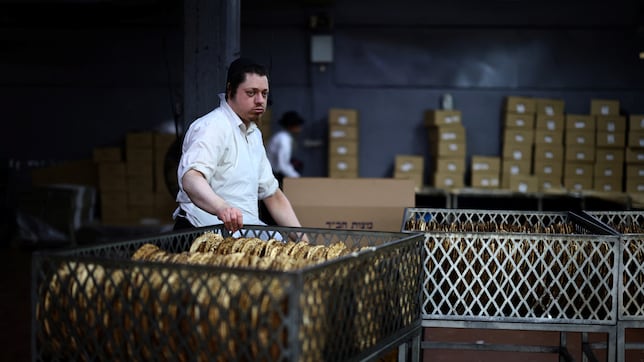
Passover is one of the most important holidays in the Jewish faith, and this year, it will last from 22-30 April. During this period, many Jewish families and communities come together to celebrate their freedom, the coming of spring, and the religious tradition of service and social justice. Since the Hebrew calendar differs from the Gregorian, the dates on which Passover is celebrated shift from year to year.
How is Passover celebrated?
According to the Hebrew calendar and the Book of Exodus, Passover is to be celebrated “from the fourteenth day of the month at evening, you shall eat unleavened bread until the twenty-first day of the month at evening.” Food is a central focus of Passover, with the Torah commanding that during these dates, followers do not eat bread that has been leavened through yeast or any other agent.
Passover is a significant event, and one of its most crucial celebrations is the Seder. It is usually observed with friends and family and involves specific foods and storytelling. However, the types of foods served differ depending on where a family celebrates. Sephardic communities usually have a more Mediterranean influence on their Seder menu. Moreover, there are variations between families, but some of the most common dishes to be served are matzo ball soup, beef brisket, and potatoes. The Seder is celebrated on the first night of Passover and, in some cases, on the second night as well. During the dinner, those present will read the Haggadot, which comes in different variations, some funny, some serious. The Haggadot explains the story of Passover.
What does Passover celebrate?
The celebration is inspired by the Book of Exodus, which forms part of the Old Testament, or the Torah, the holy book of the Jewish religion.
The holiday dates back to Ancient times and celebrates the freedom of the Israelites from the shackles of slavery by an Egyptian Pharaoh. Moses, the Jewish prophet, was told by the god of the Israelites, Yahweh, that he was supposed to take on the power of the Pharaoh to free his people. Yahweh is said to have inflicted ten plagues on the Egyptian people, including on the tenth day of the killing of their first-born son. The Israelites are believed to have been saved from this curse because Yahweh told Moses that they should put lamb’s blood in front of their homes so that their god would know to avoid them. This biblical story continues to be studied by religious scholars because there are very few ways to verify the events as they are described in the text.
When the Pharaoh eventually let the Israelites leave Egypt, it is said that they left so quickly that they did not allow their bread to rise, which is why the consumption of leavened foods is barred during Passover.
